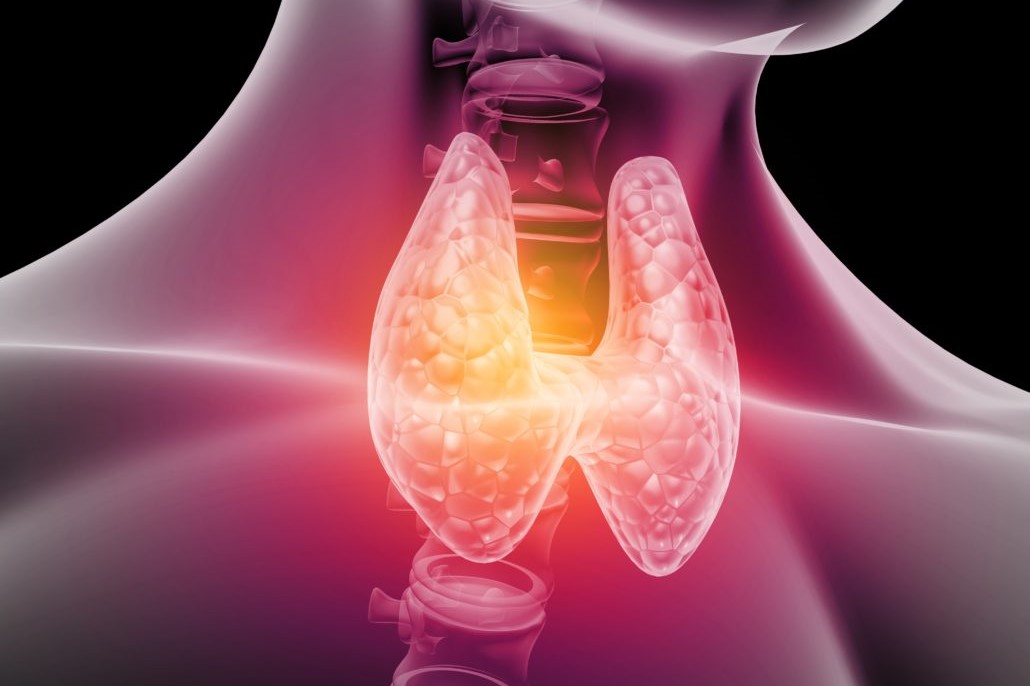
Hypothyroidism: causes, symptoms and treatment
Hypothyroidism is a dysfunction of the thyroid gland: the gland is unable to produce a normal amount of thyroid hormones – Thyroxine (T4) and Triiodothyronine (T3) – which are therefore present in the blood in lower than normal amounts
It is a rather common pathological condition, especially in women and the elderly, and results in a slowing down of the body’s functions.
What causes hypothyroidism
There are at least two forms of hypothyroidism; the primary form, by far the most common, is caused by a decrease in functioning thyroid tissue.
The most common cause is autoimmune thyroiditis, i.e. a process of the body’s own self-aggression towards the gland, mediated by the immune system that causes progressive destruction of functioning thyroid tissue.
Another relatively frequent cause is surgical removal or destruction by radioiodine, administered for therapeutic purposes, of the gland.
Deficiency of iodine, a trace element that enters into the chemical composition of thyroid hormones, has been a very important cause of hypothyroidism in the past.
Even today, we should not underestimate it, even though, compared to even a relatively recent past, the situation has changed profoundly: people go to the seaside, eat fish, shellfish, there is iodized salt on the market and there is more attention paid by doctors to the problem.
What are the symptoms of hypothyroidism?
The symptoms of hypothyroidism tend to appear gradually and include:
- fatigability
- intolerance to cold
- constipation
- decreased heart rate
- decreased libido
- weight gain
- mental torpor
- difficulty concentrating
- memory loss
- reduced mood
- drowsiness
- muscle numbness
- excessive menstrual flow
- reactive hypoglycaemia
- dry skin
- hair loss
The diagnosis of hypothyroidism can be made with a simple blood test to measure the concentration of TSH (Thyroid Stimulating Hormone), the hormone that stimulates the production of T3 and T4.
An increase in TSH therefore indicates that the thyroid is underactive.
Treatment and prevention of hypothyroidism
The treatment of hypothyroidism consists of replacement therapy with synthetic thyroid hormones (thyroxine), generally taken by the patient for life.
Taking them in the appropriate quantities does not entail any side effects because we are not administering a drug but the same hormone produced by the gland.
Treatment results in complete regression of symptoms and complete restoration of normality.
Hypothyroidism can be prevented by taking iodized salt or adding iodine to drinking water
Even today, albeit with great variability from area to area, part of Italy is at risk of an insufficient iodine intake.
The regions most at risk are the southern and island regions.
The entry into force of the law on iodine prophylaxis (March 2005), which promoted the sale of iodised salt, is resolving the problem.
Read Also:
Emergency Live Even More…Live: Download The New Free App Of Your Newspaper For IOS And Android
Hashimoto’s Thyroiditis: What It Is And How To Treat It
Lymphoma: 10 Alarm Bells Not To Be Underestimated
Thyroid Nodule: Signs Not To Be Underestimated
Thyroid: 6 Things To Know To Get To Know It Better
Thyroid Nodules: What They Are And When To Remove Them
Thyroid, The Symptoms Of A Malfunctioning Thyroid Gland
Thyroid Nodule: What Is It And What Are The Symptoms?
Non-Hodgkin’s Lymphoma: Symptoms, Diagnosis And Treatment Of A Heterogeneous Group Of Tumours
CAR-T: An Innovative Therapy For Lymphomas
Lymphangiomas And Lymphatic Malformations: What They Are, How To Treat Them
Lymphadenomegaly: What To Do In Case Of Enlarged Lymph Nodes
Swollen Lymph Nodes: What To Do?
Hyperthyroidism: Symptoms And Causes
What Are The Symptoms Of Hyperthyroidism?


